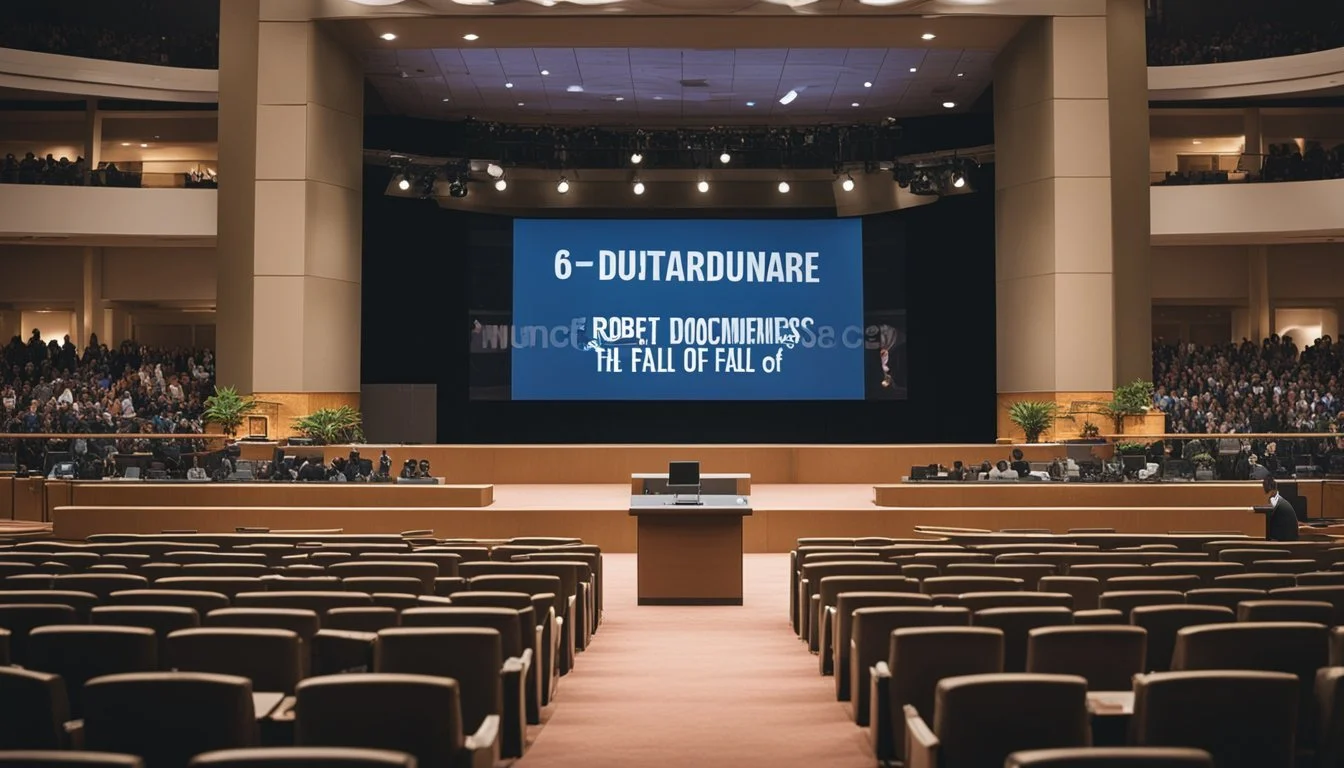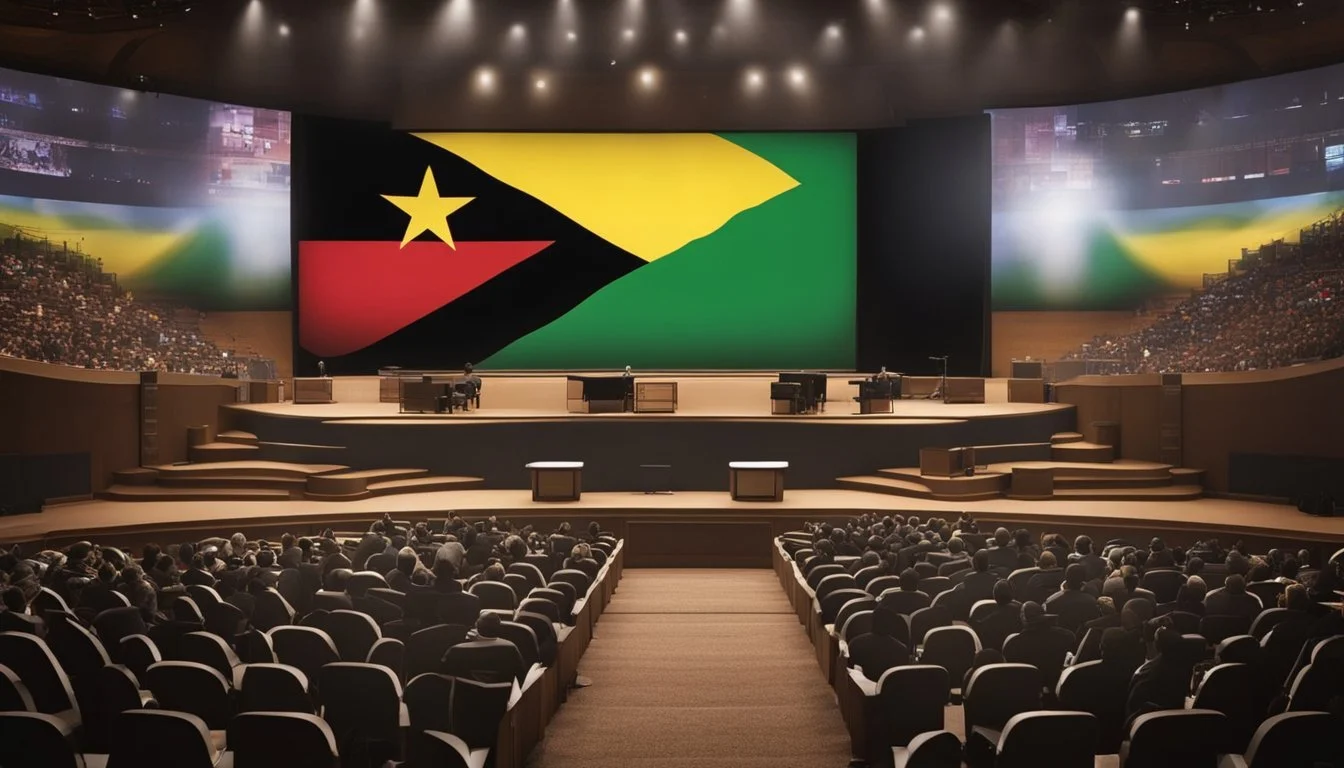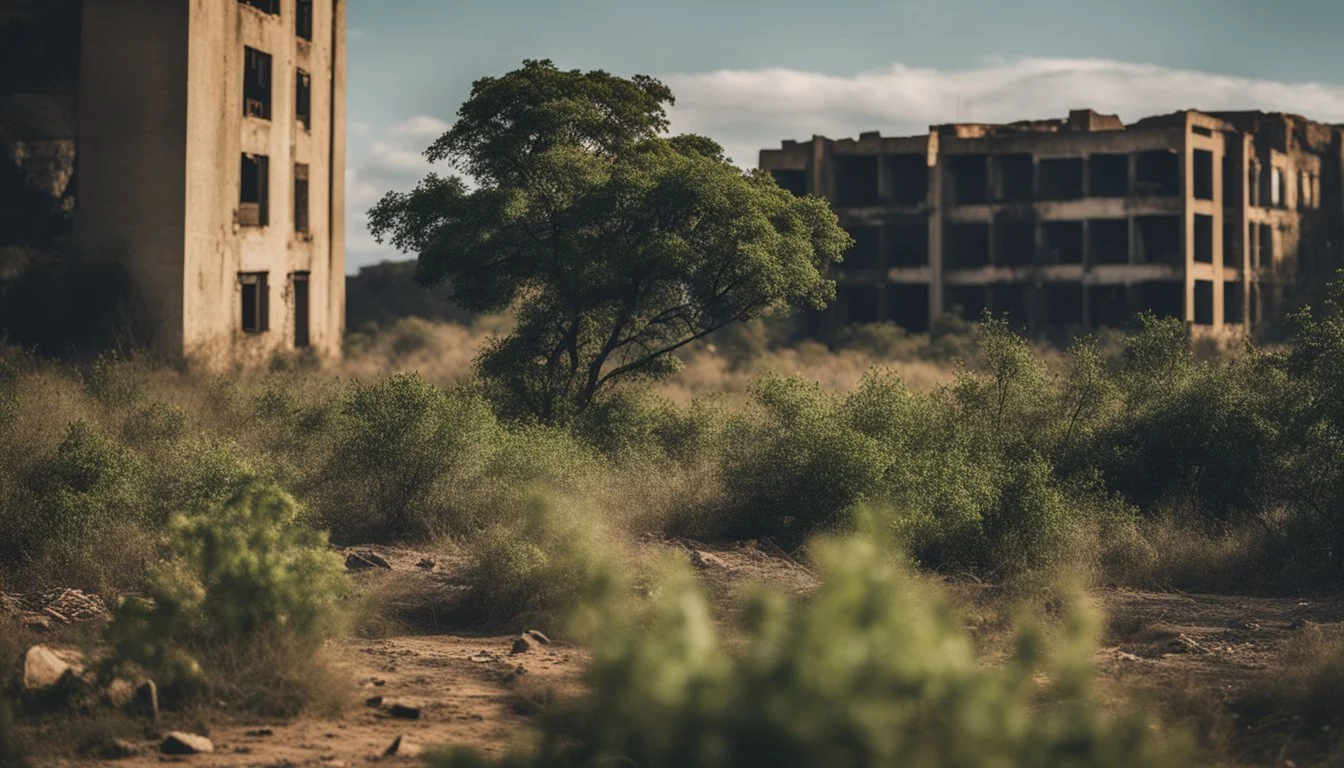6 Documentaries on the Rise and Fall of Robert Mugabe
Unveiling Zimbabwe's Turbulent History
Robert Mugabe, a key player in Zimbabwe's history, led the nation from its independence in 1980 until his ousting in 2017. His tenure witnessed remarkable highs and devastating lows, shaping the country's socio-political landscape in profound ways.
Exploring Mugabe's complex legacy through documentaries provides critical insights into his rise to power and eventual downfall. These films capture the intricate story of a leader whose influence on Zimbabwe still echoes today.
1) Mugabe and the White African (2009)
"Mugabe and the White African" (2009) is a documentary directed by Lucy Bailey and Andrew Thompson. It focuses on the struggles of a white Zimbabwean family, the Campbells, who run a farm in Chegutu.
The film documents their legal battle against the Zimbabwean government's Fast Track land redistribution program. This program aimed to redistribute land from white farmers to black Zimbabweans, often resulting in violent farm invasions.
Much of the documentary was filmed clandestinely, capturing the dangers faced by the family. The Campbells challenged President Robert Mugabe and sought justice through an international lawsuit.
The film received critical acclaim and was nominated for BAFTA and Emmy awards. It won the Grierson Award in 2010, highlighting its impact and authenticity.
For more information, visit the Wikipedia page.
2) The Dictator's Playbook: Robert Mugabe
"The Dictator's Playbook" series on PBS includes an insightful episode on Robert Mugabe. This documentary explores how Mugabe, once seen as a hero of liberation, eventually became a symbol of tyranny and oppression in Zimbabwe.
Through a detailed narrative, viewers are taken on a journey starting from Mugabe's rise to power. It delves into his political strategies, which involved both cunning diplomacy and ruthless suppression of opposition.
The episode also examines the international and domestic factors that allowed him to maintain his grip on power for 37 years. Episodes on similar dictators are presented, showcasing the shared tactics employed by these leaders.
This series sheds light on Mugabe's fall, marked by economic crisis and widespread unrest. It also highlights the military coup in 2017 that ended his rule. The documentary offers a balanced and factual account of these events, supported by archival footage and expert interviews.
For those interested, more information can be found on the PBS website (2019).
3) Mugabe: Villain or Hero?
"Mugabe: Villain or Hero?" (2012) by Roy Agyemang offers a nuanced look at Robert Mugabe's complex legacy.
Agyemang questions the narrative often presented by Western media. The director spent three years documenting Mugabe's life and governance. This film grants unprecedented access to Mugabe, presenting him less as a tyrant and more as a defiant leader resisting Western interventions.
The documentary showcases interviews and behind-the-scenes footage that reveals Mugabe's motivations and actions. It challenges viewers to reconsider their perspectives on Mugabe, highlighting the duality of his image as both a freedom fighter and an autocratic leader.
Agyemang's film doesn't shy away from controversies surrounding Mugabe. It touches on issues of human rights abuses and economic mismanagement. These elements are crucial for understanding Mugabe's polarizing status in global politics.
"Mugabe: Villain or Hero?" is an essential watch for those seeking to understand the multifaceted nature of Robert Mugabe's rule in Zimbabwe. It stands out by providing an in-depth and balanced view, making it a significant contribution to the discourse on Mugabe.
For more information, visit the IMDB page.
4) Zimbabwe's Lost Decade
During the 2000s, Zimbabwe experienced severe economic decline under Robert Mugabe's rule. This period, often referred to as "Zimbabwe's Lost Decade," saw hyperinflation soar, reaching unprecedented levels. The country's economy, once considered one of Africa's most promising, faced catastrophic collapse.
Many factors contributed to this decline, including controversial land reforms. These reforms aimed to redistribute land from white farmers to black Zimbabweans but led to significant agricultural disruption. Production plummeted, and food shortages became rampant.
The government responded with aggressive monetary policies, printing excessive amounts of money. This resulted in hyperinflation, with the Zimbabwean dollar losing almost all its value. Citizens often resorted to bartering as currency became practically worthless.
Throughout these years, social services deteriorated rapidly. Healthcare systems collapsed, education quality diminished, and unemployment rates soared. The infrastructure crumbled, and millions of Zimbabweans emigrated in search of better opportunities.
Human rights abuses also marked this period. Political opposition was met with repression, violence, and intimidation. Elections were marred by allegations of rigging and foul play, further eroding trust in the government.
The documentaries below explore this tumultuous period in Zimbabwe's history:
Mugabe and the White African (2009) - IMDB
Zimbabwe's Forgotten Children (2010) - IMDB
Robert Mugabe... What Happened? (2011) - IMDB
Mugabe: Villain or Hero? (2012) - IMDB
Beatrice Mtetwa and the Rule of Law (2013) - IMDB
Democrats (2014) - IMDB
5) The Fall of an African Dictator
The story of Robert Mugabe’s downfall is one of dramatic political shifts. Initially celebrated as a liberation hero, Mugabe's tenure turned increasingly autocratic over the decades. He ruled Zimbabwe from its independence in 1980 until a military coup ended his reign in 2017.
One key moment in his fall was the internal conflict within his party, ZANU-PF. Factional battles and Mugabe’s decision to position his wife, Grace Mugabe, for leadership catalyzed unrest. This led to the military's intervention to depose him.
Several documentaries capture this significant period. These films highlight Mugabe's transition from a revolutionary leader to a despised autocrat. They feature interviews, archival footage, and analyses from political experts and insiders.
For further viewing, consider "The Rise and Fall of Zimbabwe's Robert Mugabe" on Al Jazeera. This documentary provides a comprehensive timeline of events leading to Mugabe's ousting. Read more on Al Jazeera
Another source is the film "Mugabe" (2023). Directed by Robert Peters, this film examines how Mugabe became a tyrant and how his own allies turned against him. Learn more on IMDb
Each of these works serves as an essential resource for understanding the complexities of Mugabe's regime and its ultimate collapse. These stories are crucial for grasping the political and social ramifications of his rule in Zimbabwe.
6) Mugabe's Legacy
Robert Mugabe's legacy is one marked by complexity and controversy. He played a pivotal role in Zimbabwe's struggle for independence, becoming a symbol of liberation and hope for many.
Under his leadership, Zimbabwe experienced significant advancements in education and healthcare. These early years cemented Mugabe's image as a champion of his people.
However, his later years in power were overshadowed by economic decline and political repression. Critics point to hyperinflation, land seizures, and human rights abuses as significant detriments to his legacy.
Mugabe's 37-year rule ended with a military coup in 2017. His resignation marked the end of an era and left the nation grappling with the implications of his prolonged leadership.
For more detailed accounts and perspectives, numerous documentaries explore his rise and fall. They offer insights into his impact on Zimbabwe and the world's perception of authoritarian regimes.
Early Life and Rise to Power
Robert Mugabe's early life in Rhodesia, coupled with his extensive education, set the stage for his eventual rise to political power. His formation as a leader began in the educational and ideological foundations of his youth, eventually leading him to spearhead Zimbabwe's independence movement.
Background and Education
Robert Gabriel Mugabe was born on February 21, 1924, in Kutama, Southern Rhodesia (now Zimbabwe). Raised in a Roman Catholic mission, his early education was marked by discipline and rigorous academic training.
Mugabe attended Kutama College, excelling academically, which earned him a scholarship to the University of Fort Hare in South Africa. There, he obtained a Bachelor of Arts degree and was exposed to nationalist ideas that would later shape his political ideology.
After graduating, Mugabe pursued further education abroad, earning additional degrees in education and economics via correspondence courses. His educational background provided a strong intellectual foundation and positioned him well in debates and political discourse.
Political Beginnings
Mugabe's political career began in the 1960s when he joined the National Democratic Party (NDP). He quickly rose through the ranks due to his eloquence and strong organizational skills.
The NDP was soon banned, but Mugabe continued his activism with the Zimbabwe African Peoples Union (ZAPU) and later the Zimbabwe African National Union (ZANU), which he co-founded in 1963. His strong anti-colonial rhetoric and leadership within these groups made him a central figure in the liberation movement.
In 1975, after a decade of imprisonment by Rhodesian authorities, Mugabe assumed leadership of ZANU. Under his direction, ZANU's military wing, the Zimbabwe African National Liberation Army (ZANLA), intensified guerrilla warfare against the Rhodesian government. These efforts were pivotal in securing international support and advancing the cause for Zimbabwean independence, leading to the Lancaster House Agreement in 1979 and the subsequent establishment of Zimbabwe in 1980.
Mugabe's Rule
Robert Mugabe’s rule over Zimbabwe started as a beacon of hope for many. However, it transitioned into a period known for economic decline, human rights violations, and political repression.
Economic Policies
Mugabe initially focused on education and healthcare, earning praise for high literacy rates. The Land Reform program, which aimed to redistribute land from white commercial farmers to black Zimbabweans, was controversial.
Although it addressed historical inequalities, it led to a decline in agricultural productivity, contributing to food shortages. Hyperinflation plagued the economy, peaking in 2008, with estimates suggesting inflation rates reached 89.7 sextillion percent. The Zimbabwean dollar became virtually worthless, leading to the adoption of foreign currencies like the US dollar and South African rand.
Human Rights Record
Mugabe's tenure was marked by numerous human rights abuses. Reports of torture, enforced disappearances, and extrajudicial killings were frequent. The government’s Operation Murambatsvina in 2005 displaced over 700,000 people under the pretext of urban renewal.
Criticism also came from international human rights bodies for crackdowns on freedoms of speech and assembly. Journalists and political opponents often faced arbitrary arrests. The 1980s Gukurahundi massacre, targeting the Ndebele people, resulted in thousands of deaths and was one of the most egregious examples of state-sponsored violence.
Political Repression
Mugabe maintained a firm grip on power through political oppression and electoral manipulation. The ruling party, ZANU-PF, monopolized the political landscape, often through intimidation and violence during elections. Opposition parties like the Movement for Democratic Change (MDC) faced systematic harassment.
The media was heavily censored, and laws were enacted to limit political dissent. Prominent opposition leaders, including Morgan Tsvangirai, were repeatedly detained. The 2008 elections were notably marred by widespread violence and allegations of rigging, reflecting the broader trend of Mugabe’s autocratic style.
Decline and Fall
Robert Mugabe's grasp on Zimbabwe's leadership crumbled due to internal party strife and decisive military actions. His fall was marked by deep-rooted issues within his own party and a significant military coup.
Internal Party Conflict
The ZANU-PF party, which Mugabe led since Zimbabwe's independence in 1980, became a battleground for power. Factionalism surfaced, especially as Mugabe aged and health concerns grew.
Young party members vied for control. Key figures like Emmerson Mnangagwa, Mugabe’s long-time ally and vice president, were pivotal in this internal struggle. Mugabe’s decision to dismiss Mnangagwa in November 2017 sparked outrage.
Grace Mugabe, Robert’s wife, also played a controversial role. Her ambitions and influence polarized the party further. Many senior party members considered her a destabilizing factor, accelerating the unfavorable sentiment towards Mugabe’s leadership.
Military Intervention
In November 2017, the Zimbabwean military executed a coup. Officially termed “Operation Restore Legacy,” it aimed to remove “criminals” around the president, but its true intent was to depose Mugabe.
The army took control of national broadcasters and placed Mugabe under house arrest. They assured the public that it was not a military takeover but a move to restore stability.
Key military leaders, once Mugabe’s loyalists, now questioned his governance. Tanks in Harare and soldiers on the streets signaled a turning point. Under pressure, Mugabe resigned on November 21, 2017, ending his 37-year rule.
These events concluded one of the longest and most controversial presidencies in African history.
Legacy and Impact
Robert Mugabe's leadership left a lasting mark on Zimbabwe’s socio-political landscape and its standing in the world. This section addresses the tangible effects of his rule within Zimbabwe and the global view of his tenure.
Zimbabwe's Current State
Zimbabwe's struggles with economic instability, widespread poverty, and political turmoil are key parts of Mugabe's legacy. Under his rule, controversial land reforms and economic policies led to hyperinflation and unemployment.
The healthcare and education sectors, once among the best in Africa, deteriorated significantly. Corruption and human rights abuses increased, affecting the population's quality of life.
Despite some infrastructural development under Mugabe, these advancements were often overshadowed by the broader negative impacts. Various efforts to stabilize the economy and improve living conditions continue, with mixed results.
Global Perception
Globally, Mugabe's leadership is often viewed with a mix of criticism and admiration. Some laud his anti-colonial efforts and stance against Western influence, seeing him as a symbol of African sovereignty.
Conversely, many criticize his authoritarian approach, economic mismanagement, and human rights violations. This duality affects Zimbabwe’s international relationships and its reputation on the global stage.
Mugabe’s conflict with Western nations, coupled with sanctions, isolated Zimbabwe economically and politically. The international community continues to scrutinize the country’s progress post-Mugabe, with varying degrees of support and opposition.





